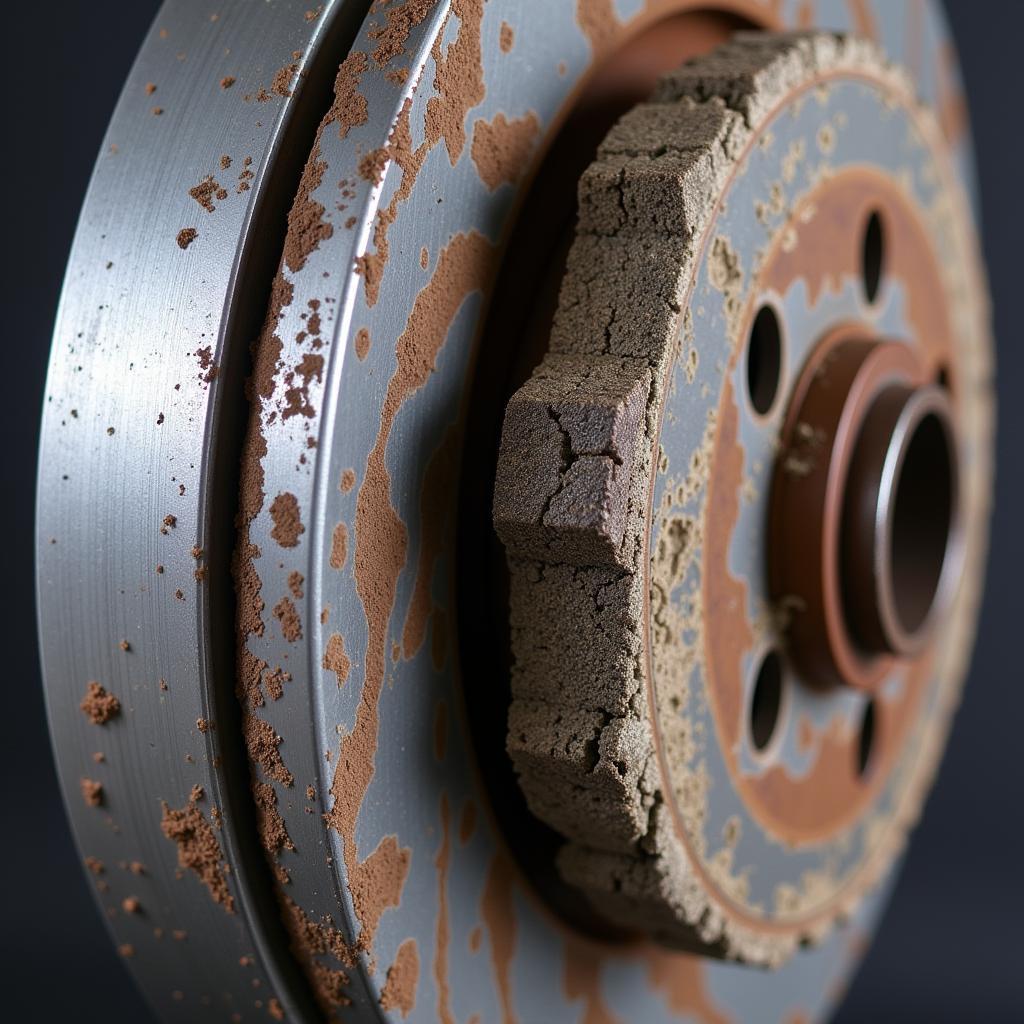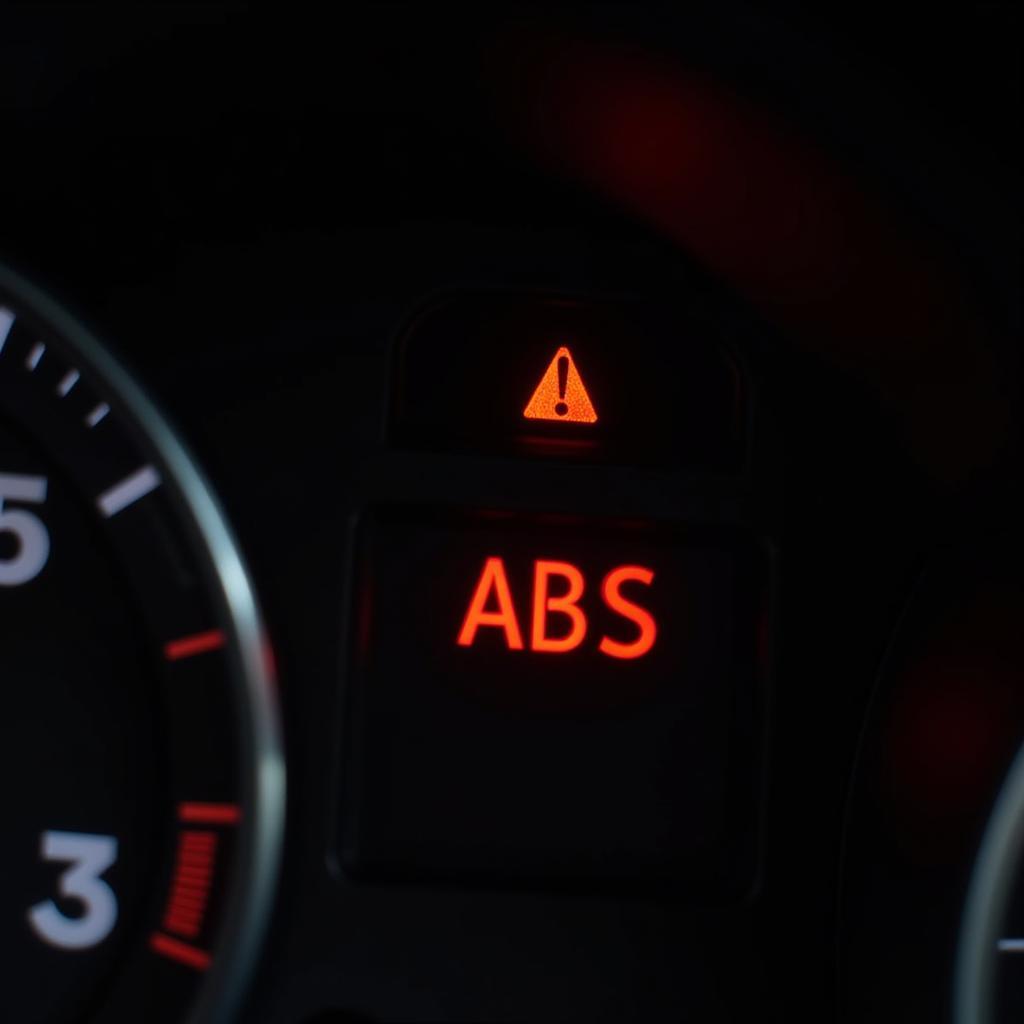Owning and driving a car can be a freeing experience, but it also comes with the responsibility of ensuring your vehicle is safe and roadworthy. A car that won’t stop properly poses a serious safety hazard to you, your passengers, and others on the road. There are various reasons why you might encounter Problems To Make Your Car Stop, ranging from worn-out brake pads to more complex issues with your car’s hydraulic system.
Did you know problems with your car’s audio system, such as those found in a touch screen car audio problem, while seemingly unrelated, can sometimes be a symptom of a larger electrical issue that might also affect your car’s braking system? It’s crucial to understand the common causes behind braking problems and learn how to identify them.
Common Car Stopping Problems and Their Causes
Several components work together to bring your vehicle to a halt. A problem with any of these parts can lead to issues with stopping your car. Let’s delve into some of the most common car stopping problems and their causes:
1. Worn Brake Pads and Rotors
This is perhaps the most frequent reason for braking problems. Brake pads are designed to wear down over time, and when they do, you’ll experience less effective braking. If ignored, worn brake pads can damage the rotors, leading to costly repairs.
Symptoms of worn brake pads:
- Squealing or screeching noises when braking
- Grinding noise when applying the brakes
- Vibrations felt through the brake pedal
- Car pulling to one side when braking
 Worn Brake Pads and Rotors
Worn Brake Pads and Rotors
2. Brake Fluid Leak
Brake fluid is essential for transferring the force you apply to the brake pedal to the wheels, ultimately stopping the car. A leak in the brake lines can significantly reduce braking power, making it difficult to stop the car safely.
Signs of a brake fluid leak:
- Soft or spongy brake pedal
- Brake pedal going closer to the floor than usual
- Puddles of fluid under your car, usually yellowish in color
3. Air in the Brake Lines
Air can get trapped in your car’s brake lines, compressing when you press the brake pedal and preventing the brake fluid from applying full pressure on the brakes. This results in a spongy brake pedal and reduced braking efficiency.
How air gets into brake lines:
- Improper bleeding of the brake system after repairs
- Damaged brake lines allowing air to enter
4. Faulty Master Cylinder
The master cylinder is the heart of your car’s braking system, responsible for converting the force from the brake pedal into hydraulic pressure. A malfunctioning master cylinder can lead to a complete loss of braking power, making your car extremely unsafe to drive.
Signs of a faulty master cylinder:
- Brake pedal sinking to the floor
- Difficulty in stopping the car, requiring excessive pedal pressure
- Unusual noises when applying the brakes
5. Malfunctioning ABS System
The Anti-lock Braking System (ABS) prevents your wheels from locking up during hard braking, allowing you to maintain steering control. If your ABS system malfunctions, you might experience uncontrolled skidding or difficulty stopping the car within a safe distance.
Common symptoms of a failing ABS system:
- ABS warning light illuminated on the dashboard
- Unusual pulsing or grinding sensation when braking
 ABS Warning Light on Dashboard
ABS Warning Light on Dashboard
What to Do When Your Car Won’t Stop Properly
Experiencing problems with your car’s braking system can be frightening. Here’s what you should do if you find yourself in such a situation:
- Stay calm and assess the situation: Avoid panicking and try to determine the severity of the problem.
- Gradually apply the brakes: Don’t slam on the brakes, as this might cause the wheels to lock up, making it difficult to control the car.
- Downshift to a lower gear (manual transmission): If you drive a manual car, downshifting can help slow down the vehicle using engine braking.
- Engage the parking brake: Carefully apply the parking brake to bring the car to a gradual stop.
- Pull over to a safe location: As soon as you can, steer the vehicle off the road and into a safe location away from traffic.
- Call for roadside assistance: Once you’re in a safe place, call for roadside assistance or a tow truck to transport your car to a mechanic.
Preventing Car Stopping Problems: Maintenance Tips
Regular maintenance is key to avoiding car stopping problems. Here are some preventive measures you can take:
- Regular brake inspections: Have your brakes inspected by a qualified mechanic at least once a year or every 12,000 miles.
- Timely brake pad replacement: Replace your brake pads as soon as they show signs of wear. Don’t wait until they are completely worn down.
- Check and top off brake fluid: Regularly check your brake fluid level and top it off as needed. If you notice a significant drop in brake fluid, it could indicate a leak that needs immediate attention.
- Flush brake fluid: Brake fluid absorbs moisture over time, which can reduce its effectiveness. Have your brake fluid flushed and replaced every 2-3 years or as recommended by your car manufacturer.
Remember, sometimes even with regular maintenance, unexpected issues can arise. It’s always a good practice to pay attention to your car’s braking performance and be aware of any unusual noises or sensations. Early detection of potential problems can prevent more severe issues and costly repairs down the line.
Importance of Addressing Car Stopping Problems Promptly
Ignoring braking problems can have severe consequences, potentially leading to accidents and injuries. If you experience any issues with your car’s braking system, address them immediately. Don’t wait for the problem to worsen or attempt to fix it yourself unless you have the necessary expertise.
“Brakes are one of the most critical safety features in your car,” says John Miller, a certified automotive technician with over 20 years of experience. “Even minor issues can escalate quickly, compromising your safety and that of others on the road. Regular maintenance and prompt attention to any problems are crucial for ensuring optimal braking performance and preventing accidents.”
Conclusion
Experiencing problems to make your car stop can be a harrowing experience, but understanding the common causes and taking prompt action can mitigate the risks. By staying vigilant, adhering to a regular maintenance schedule, and seeking professional help when needed, you can ensure your car’s braking system functions optimally, keeping you and others safe on the road. If you’re experiencing car troubles and need expert advice, don’t hesitate to contact AutoTipPro at +1 (641) 206-8880 or visit our office at 500 N St Mary’s St, San Antonio, TX 78205, United States.







Leave a Reply